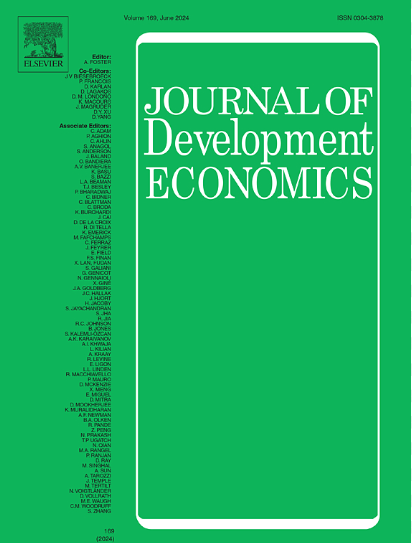射击移动的目标:评估收入波动时社会计划的目标选择工具
IF 4.6
1区 经济学
Q1 ECONOMICS
引用次数: 0
摘要
中低收入国家政策制定者面临的一个主要挑战是如何设计一种方法,在收入不可观测且不稳定的情况下选择社会项目的受益人。我们利用哥伦比亚社会登记册中包含 2020 年经济危机之前、期间和之后信息的随机家庭样本的独特面板数据集,对传统的静态近似均值检验(PMT)和三种与政策相关的替代方法进行了评估。我们考虑了政府社会福利功能、总体经济环境以及预算和政治限制的不同曲率下的目标设定指标和社会福利。与静态 PMT 相比,更新 PMT 数据并不能改善社会福利。放宽资格门槛可以减少排除误差,增加纳入误差,提高社会福利。利用冲击数据估算收入可变部分的动态方法减少了排除误差,限制了覆盖范围的扩大,增加了经济危机期间的社会福利。本文章由计算机程序翻译,如有差异,请以英文原文为准。
Shooting a moving target: Evaluating targeting tools for social programs when income fluctuates
A key challenge for policymakers in low- and middle-income countries is to design a method to select beneficiaries of social programs when income is unobservable and volatile. We use a unique panel dataset of a random sample of households in Colombia’s social registry that contains information before, during, and after the 2020 economic crisis to evaluate a traditional static proxy-means test (PMT) and three policy-relevant alternatives. We consider targeting metrics and social welfare under different curvatures of governments’ social welfare function, aggregate economic environments, and budgetary and political constraints. Updating the PMT data does not improve social welfare relative to the static PMT. Relaxing the eligibility threshold reduces the exclusion error, increases the inclusion error, and increases social welfare. A dynamic method that uses data on shocks to estimate a variable component of income reduces exclusion errors and limits the expansion in coverage, increasing social welfare during the economic crisis.
求助全文
通过发布文献求助,成功后即可免费获取论文全文。
去求助
来源期刊

Journal of Development Economics
ECONOMICS-
CiteScore
8.30
自引率
4.00%
发文量
126
审稿时长
72 days
期刊介绍:
The Journal of Development Economics publishes papers relating to all aspects of economic development - from immediate policy concerns to structural problems of underdevelopment. The emphasis is on quantitative or analytical work, which is relevant as well as intellectually stimulating.
 求助内容:
求助内容: 应助结果提醒方式:
应助结果提醒方式:


